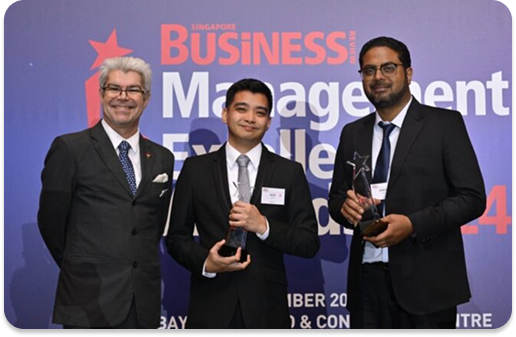Business Process Outsourcing or BPO refers to delegating business tasks and processes to a third-party service provider.
The provider is responsible for administering and managing said processes based on defined goals and KPIs (Key Performance Indicators).
If your organization has been considering outsourcing non-primary but equally essential tasks, it’s crucial to understand the many different BPO business models available.
Different BPO models provide your companies with ways of handling projects, operations, and non-core activities. Many models of outsourcing services have emerged throughout recent years. We’ll discuss each in this guide so you can choose a model that best fits your outsourcing needs.
Table of Contents
1. What Do BPO Companies Do?
- Marketing
- Accounting
- Data Processing
- IT (Information Technology) enabled services
- Customer service
- Payroll
BPO companies provide these services to businesses that can no longer keep up with daily demands. They may also want to focus on other core business functions.
Most businesses also find that outsourcing has made their work more efficient. Rather than building an in-house team or a new department from the ground up, BPO providers already have the staffing and software to get the job done.
As each client possesses varying requirements, BPO companies must provide ample training and upskilling to their agents.
The goal is to empower these agents to understand the client’s goals. Additionally, they help add value to the company.
2. What Are The Benefits Of Business Process Outsourcing?
More than 60% of US-based businesses outsource at least one department. If you’re wondering why companies choose to outsource work, then it’s thanks to a host of benefits:
- Improved Efficiency
- Cost-Effective
- Better Security
- Expert Advice From Industry Professionals
Improved Efficiency
Outsourcing allows companies to streamline non-core activities, like payroll services and IT.
Specialists will handle these responsibilities. This gives the business more time for research and development. Additionally, employees have more room to finish their tasks. They can also work on developing their knowledge and skills.
Cost-Effective
Developing an HR department or IT team from scratch takes up a huge chunk of resources. The costs of maintaining hardware and software operations may also be high.
But through BPO outsourcing, companies can divest fewer resources on:
- Training
- Buying software
- High-tech systems
- Peripherals
Administrative expenses are exponentially lowered. This gives companies more financial resources to focus on areas like:
- Manufacturing
- Production
- Main business trade
Lower costs spell good news for employees. Companies can incentivize them better and provide bonuses or higher pay grades based on performance.
Better Security
The IT department is one popularly outsourced service across companies globally. Systems are becoming increasingly complex. New cybersecurity threats are developing daily. So, there must also be a focus on improving IT security systems.
The BPO industry has also improved its IT security arsenal to combat the rise of cyber threats. An IT outsourcing company can recommend up-to-date cybersecurity solutions.
Moreover, they will handle:
- Troubleshooting
- Management
- Monitoring
All these ensure your data is kept safe against these cyber threats.
Expert Advice From Industry Professionals
Business success partially relies on the management’s ability to delegate tasks.
For example, a team of highly skilled salespeople can accomplish more than just filing documents online or inputting data on spreadsheets. It’s best to give them room for growth and develop their potential.
Fortunately, an external service provider like a BPO company can provide expert and actionable advice on improving your processes. Their specialists can take on these assignments, helping free up your employees’ time.
You also don’t have to worry about the agents’ familiarity with your company’s operations. They are trained to understand business-specific values, goals, and performance metrics. They may even better grasp the work and perform it more efficiently than your current team.

3. Types Of Business Process Outsourcing Models
A BPO business model defines how the outsourcing company operates. It also outlines the types of services it offers to its clients.
A BPO model is typically based on the client’s goals, needs, budget, and location.
Since companies require tailor-fit solutions, BPO models can intersect with one another. Doing so gives clients better flexibility and versatility. BPO services can also be customized to address almost every aspect of the clients’ demand.
Global Outsourcing
Global outsourcing provides services across different continents.
BPO companies will set up office spaces in the world’s top outsourcing destinations in this model.
They will hire aspiring professionals looking to find stable and long-term employment in the outsourcing industry.
Seasonal Outsourcing
Seasonality plays a crucial factor in businesses. Unexplained increases or decreases in sales and leads can often be attributed to seasonality.
Sectors often affected by seasonal changes in demand include retail and e-Commerce.
For instance, demand spikes are frequent right around Christmas. Retail companies must plan for such upticks and plan their production and inventories accordingly.
Consumers generally buy more products around this time, which is why the above-mentioned industries might benefit from seasonal outsourcing.
Seasonal outsourcing provides a temporary workforce for companies to keep up with surges in demand.
This allows more room to focus on production and improve customer satisfaction rates.
Additionally, outsourcing on a seasonal basis is cost-effective. There is no need to hire permanent staff. You can call your provider to give you BPO personnel only when the business demands it.
Offshore Outsourcing
Offshore outsourcing entails partnering with service providers in distant countries, typically where labor costs are significantly lower. This model is popular for functions like customer service, IT support, and back-office tasks.
Companies can achieve substantial cost savings due to the wage differential. However, challenges may include language barriers, time zone differences, and varying cultural norms. Successful offshore outsourcing often requires robust communication strategies and effective management of remote teams.
Some of the world’s top IT destinations include:
- India
- China
- Vietnam
- Philippines
- Indonesia
- Poland
- Romania
- Ukraine
Nearshore Outsourcing
This business process outsourcing model involves outsourcing to neighboring or nearby countries. Nearshoring provides advantages such as cultural similarities, closer time zones, and easier travel logistics, which can facilitate better collaboration and communication.
It is an ideal solution for companies looking to maintain a balance between cost savings and operational control.
For example, North American companies may nearshore all or part of their IT services to neighboring Latin American countries like:
- Mexico
- Brazil
- Argentina
Captive Business Process Outsourcing
In this BPO business model, another company manages the parent company’s core business functions. The parent company retains these functions, hence the term “captive”.
The captive model is generally more expensive than hiring a third-party service provider or vendor for outsourcing.
However, more companies prefer to retain control rather than the cost benefits. If the company files for bankruptcy, the captive service will usually be sold separately.
Due to the expenses that could incur from this model, most companies simply choose an outside vendor or subsidiary. The vendor is entirely separate from the company and offers BPO services at a much lower cost.
Joint Venture Model
As the name suggests, a joint venture model sees the business and the third party vendor collaborating on the operations. They share equal capital, employees, assets, losses, profits, etc.
However, the parent company still manages core operations. They will delegate less crucial functions to the vendor.
Conclusion About Business Process Outsourcing Models
Business process outsourcing is a lucrative industry for many companies. Even Fortune 500 companies have at least one service that they outsource to another vendor.
If you’re seriously considering outsourcing, understanding the various options and models available can help you make the right choice.
Assess your organization’s needs. If you have plans to scale and believe that a BPO service provider can help take the load off by doing non-essential functions, this is the perfect opportunity to outsource.
Gear Inc is the global business process outsourcing vendor committed to providing tailored solutions to each of our clients. Our services can be quickly scaled up or down as needed.
Get in touch with us now! We offer outsourced solutions like cocntent moderation, customer care, data entry, data labeling, and game management.
Frequently Asked Questions About BPO Business Models
How Do Companies Choose The Right BPO Model?
Companies assess factors like cost, control, communication needs, and specific business goals. They choose models that align with their operational requirements, whether it’s cost-saving offshore options or more controlled onshore services.
What Industries Commonly Use BPO Services?
BPO services are prevalent in industries like IT, healthcare, finance, retail, telecommunications, and customer service. These sectors benefit from outsourcing specialized tasks to enhance efficiency and focus on core business functions.
How Does BPO Help With Business Scalability?
BPO allows businesses to scale operations up or down based on demand without the constraints of hiring and training new staff. It provides flexibility and cost control, especially during peak periods or expansion phases.
What Makes Gear Inc A Trusted BPO Partner?
Gear Inc is known for its commitment to quality, innovation, and client satisfaction. We offer customized solutions, cutting-edge technology, and a skilled team, ensuring that our clients receive top-notch services tailored to their unique needs.
How Does A Business Process Outsourcing Model Benefit Small Businesses?
A business process outsourcing model helps small businesses by reducing operational costs, providing access to specialized expertise, and allowing them to scale services according to demand. This enables small companies to compete with larger firms by focusing on core competencies while outsourcing non-core functions.
Gear Inc














